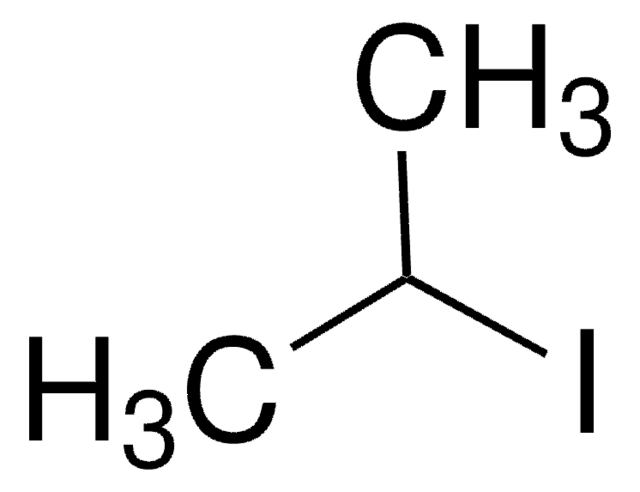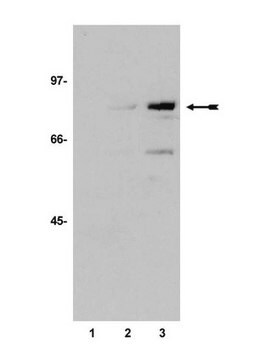210013
Hydriodic acid
contains no stabilizer, distilled, 57 wt. % in H2O, 99.99% trace metals basis
Synonym(s):
Hydriotic acid
About This Item
Recommended Products
Quality Level
Assay
99.99% trace metals basis
form
liquid
does not contain
stabilizer
concentration
57 wt. % in H2O
bp
127 °C (lit.)
mp
-50 °C
density
1.701 g/mL at 25 °C
storage temp.
room temp
SMILES string
I
InChI
1S/HI/h1H
InChI key
XMBWDFGMSWQBCA-UHFFFAOYSA-N
Looking for similar products? Visit Product Comparison Guide
Related Categories
General description
Application
Signal Word
Danger
Hazard Statements
Precautionary Statements
Hazard Classifications
Aquatic Chronic 2 - Eye Dam. 1 - Met. Corr. 1 - Skin Corr. 1B
Storage Class Code
8B - Non-combustible corrosive hazardous materials
WGK
WGK 3
Flash Point(F)
Not applicable
Flash Point(C)
Not applicable
Regulatory Listings
Regulatory Listings are mainly provided for chemical products. Only limited information can be provided here for non-chemical products. No entry means none of the components are listed. It is the user’s obligation to ensure the safe and legal use of the product.
PDSCL
Deleterious substance
ISHL Indicated Name
Substances Subject to be Indicated Names
ISHL Notified Names
Substances Subject to be Notified Names
JAN Code
210013-50ML:4548173115719
210013-250ML:4548173115702
210013-VAR:
210013-BULK:
Choose from one of the most recent versions:
Already Own This Product?
Find documentation for the products that you have recently purchased in the Document Library.
Customers Also Viewed
Our team of scientists has experience in all areas of research including Life Science, Material Science, Chemical Synthesis, Chromatography, Analytical and many others.
Contact Technical Service









